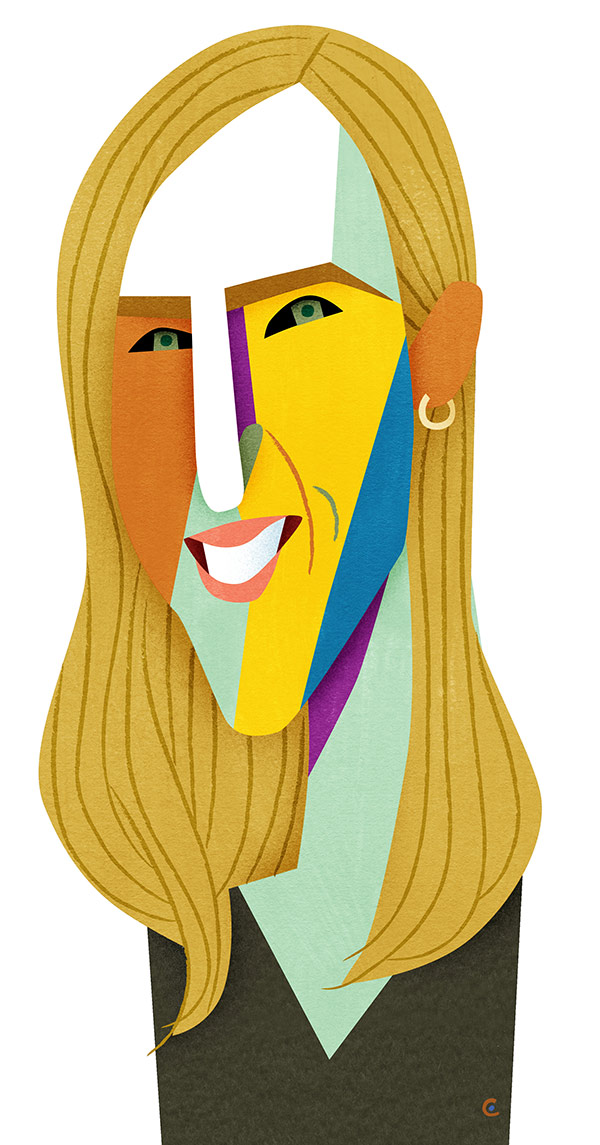Master Class
 (David Cowles for the University of Rochester)
(David Cowles for the University of Rochester)Allison Goldstein ’08
Home: Jersey City, New Jersey
Qualifier, US Olympic Team Trials in women’s marathon; principal, Allison L. Goldstein Writing & Editing Services at Allisonlgoldstein.com; contributing writer, Runner’s World and Women’s Running
On having a modest start: “I played several different sports growing up, none of them well. I swam two out of my four years at Rochester, just as a walk-on. After graduation, I started running at lunchtime with a group at work. My first half-marathon wasn’t anything to write home about. I wasn’t immediately good at this.”
In November 2019, I qualified for the US Olympic Team Trials in the women’s marathon. I had a pretty short turnaround before the actual trials, which were the following February. But the goal had really been qualifying for the trials. Making the Olympic team is a whole other level. The trials course was definitely harder. I went in knowing that my time wasn’t going to be outstanding. My qualifying time, at the Philadelphia Marathon, was 2:44:14. I finished the trials in Atlanta in 2:55:09.
I certainly didn’t set out with the goal of anything like the Olympic trials. I don’t think I even knew what that was. My goals started small and got more ambitious as I progressed. I ran my first half-marathon in 2008. Then I set the goal of finishing a marathon, and I thought that was going to be it. But then it went well, and I thought, “maybe I can improve my time.” In the marathon, breaking the three-hour barrier is a major milestone, but I actually did not set that as a goal. It just sort of happened after I ran several marathons. I ran a 2:53 in Berlin, when I actually had a pretty bad race, and I thought I could have done better. If I was so sure about that, I thought, “why not target the Olympic trials? Because if I make it, it will be the accomplishment of a lifetime. And if I don’t, I will still have gotten faster. I still will have set PRs [personal records] along the way.”
To help me stay motivated, I’ve always found people to train with, rather than going it alone. Having people around is motivating because you’re seeing them put in the work, so it makes you want to put in the work. It’s also grounding. You suddenly realize that other people also have bad days, whereas if you’re by yourself, it’s easier to think, “Oh my gosh, I’m never going to get there.”
I also think having a coach, no matter what your goal, can be really helpful. A coach can take a lot of the guesswork out. When I’m feeling really tired and a little sore, I can’t really step outside myself and decide: Should I just suck it up and do the workout, or am I risking injury? It’s good to have a guiding force to help you think through things in a less emotional way.
After every marathon I’ve run, I’ve felt a little bit of a void. This is a common experience after meeting a big goal. You feel a void, because you spent all this time and energy and attention on that one thing, and suddenly it’s gone. I’ve had this happen enough times now to know that it’s going to come, but that doesn’t make it easier to get through. And I don’t like to decide too hastily what to do next. For me, that always backfires. I’ve needed to take time to decide what’s going to be meaningful.
Last year, I dealt with that void by thinking about my next goal before the Olympic trials. I knew it couldn’t be another marathon. I needed something completely different. I decided to try a triathlon and signed up for the SOS (Survival of the Shawangunks) Triathlon in New Paltz, New York.
The COVID-19 pandemic has underscored how important it is to be flexible. The triathlon was supposed to take place last September. It’s now supposed to take place this year, but we’ll see. When I started training, as always, I relied on a group to keep me going. I have some friends who are into cycling, and one of them is in Paris, and one is in Copenhagen. So we all got on our bike trainers and set up a Zoom so that we could ride together virtually. It’s very unlikely we would have done that in normal times.

